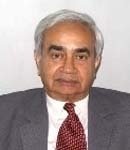India’s New Peace Initiative
24 Oct, 2003 · 1192
PR Chari raises pertinent questions on the recent peace initiatives announced by the Indian government vis-à-vis Pakistan
Be this said of the BJP-led NDA government that its foreign policy initiatives vis-à-vis Pakistan are characterised by strategic surprise. India’s nuclear tests in May 1998 shocked the world. Thereafter India made Pakistan’s stoppage of cross-border terrorism a pre-condition to stall the normalisation Indo-Pak relations just as Pakistan uses the Kashmir issue for this purpose. India relented suddenly, and set in motion its bus diplomacy, culminating in the Lahore Declaration of February 1999. The Kargil conflict intervened; but the consequent freeze in Indo-Pak relations was unfrozen by India’s surprise invitation to President Musharraf for the Agra Summit in July 2000. Disappointment there led to another freeze in bilateral relations, worsened by the year-long border confrontation between December 2001 and October 2002, high rhetoric that no dialogue was possible without cross-border terrorism ceasing, and some 20 wanted criminals, provided asylum by Pakistan, being handed over.
|
||
Now several ‘radical’ proposals have been made by India to normalise its relations with Pakistan and address the Kashmir issue. Why has the BJP made such surprise U-turns in its policy approaches towards Pakistan? Could they be designed to throw Pakistan off balance? Or earn brownie points with the world community? Or please the Americans with such expressions of maturity? Or preempt the anticipated opposition of fringe elements, both in the BJP ranks and its close allies like the Shiv Sena? So much is clear. Using the element of surprise in public policy has become a style of BJP governance.
None of the proposals made by India, however, are truly original. They largely envisage modalities to improve communications and people-to-people contacts with Pakistan that were embedded in the Simla Agreement of 1972, but have only fitfully been negotiated over the years. A varied package of communication measures has now been offered, like the restoration of road links (Srinagar-Muzaffarabad; Munabao-Khokrapar), rail links (Delhi-Lahore; Munabao-Khokrapar), sea links (Mumbai-Karachi), air links and overflight facilities. Some cosmetic measures have also been offered like restoring sports ties, stopping the arrest of fishermen straying into Indian waters, establishing links between the two coast guards, extending visa facilities to more cities and so on. Regarding Kashmir a new initiative to open talks with the Hurriyat Conference, including its separatist elements, has been assigned to Deputy Prime Minister, L.K.Advani.
An evaluation of these proposals reveals that India has finally appreciated that it has little to lose and much to gain by widening bilateral communication linkages and extending people-to-people relations with Pakistan. The chief reason why these were resisted in the past is the opposition of the Indian intelligence agencies that feared greater interaction would be used by Pakistan to increase its subversive activities in India. The argument that subversive elements were hardly likely to enter India with passports and visas was quite lost on them. The advantage to India in providing greater access to Pakistani citizens to visit India is that this would create constituencies favouring Indo-Pak normalisation of relations and enable them to perceive the benefits of democracy when they returned home to a military dictatorship.
It is unclear whether Pakistan will respond positively to these initiatives; it could easily raise the Kashmir ‘core’ issue again to stymie these offers, placing itself on the defensive. Opening the Srinagar-Muzzafarabad road will be a knotty problem for Pakistan. The necessity of visas and check posts might appear to it as consolidationg the Line of Control as an International Border that goes against its national policy. For Pakistan to refuse negotiations, however, on all these proposals would create a negative image, with India coming up smelling of roses. This could be part of the BJP’s calculations.
The Kashmir-related initiatives stand on a different footing. A split has occurred in the Hurriyat with a ‘moderate’ group emerging that seeks a negotiated settlement with India, without making this hostage to Pakistan’s concurrence. The ‘hardliners’, who wish to draw in Pakistan, are getting isolated, but a trial of strength between the two Hurriyat groups on negotiations with Advani is on the cards. Will the Deputy Prime Minister serve as the prime negotiator with the Hurriyat? Or only deal with them on an ad hoc, as-required basis? Will the Central interlocutor, N.N.Vohra’s role get abridged thereby? It is inevitable that the Deputy Prime Minister would need to take over these negotiations at some point to meet the local demand that these negotiations should proceed at a ‘heavyweight’ political level, not with an ex-bureaucrat.
We are clearly too near the event to make definitive judgments on these new proposals made by India, but the proximity of their announcement to the upcoming elections in five states casts some doubts about their sincerity and purpose. It remains to be seen how Pakistan and the Hurriyat will react, and with what interest India will pursue them. Hopefully these initiatives will not follow their predecessors into limbo.


